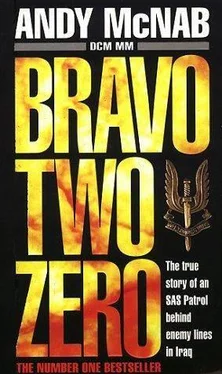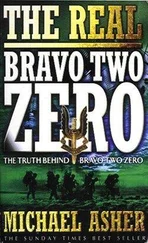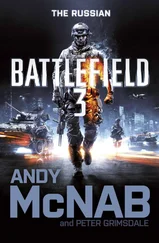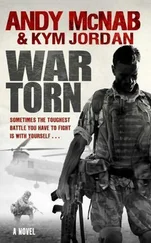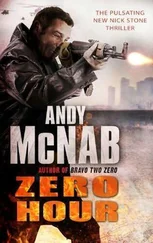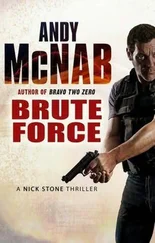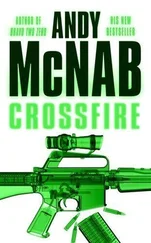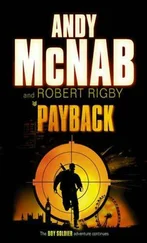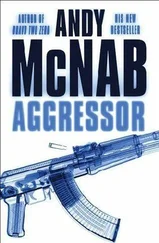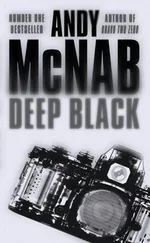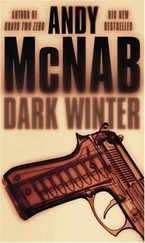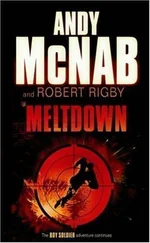The Red Cross people were tense. They posted sentries in the corridors and at all the entry points, and armed them with candles and food. It was obvious that they were expecting this to be a rough night.
Mark and I had a beer and then turned in. I planned to kip on the floor next to his stretcher in case of trouble. That was the plan but it didn’t happen. I went back upstairs to get some food and chocolate and fell asleep in a chair. Red Cross people, awake all night, sat among us in groups of two and three.
I woke up early. An official appeared and announced with a grin that it was time to go home. Mark and I had a problem now of security, because men from the Regiment are required to keep their faces out of the press at all costs. I went up and saw the pilots, and explained my concerns to the Red Cross.
“No problem,” they said. “At the same time as the coach comes to the front of the hotel, ambulances will be going to the back because we can only get the stretchers out through the service area. You can go in one of the ambulances with your friend.”
The aircrew agreed to put on a diversionary show for the media, pulling their jumpers over their heads to get the cameras clicking. Footage of these camera shy “Special Forces” lads was broadcast all over the world.
We moved off in a convoy. We had two Red Cross guys in the front of our ambulance, and as we drove along, one of them said, “We’ll give you a tour of Baghdad, if you like. If you look to your left,” he said, adopting the voice of the typical tour guide, “this is the Ministry of Information. It was a whole system of buildings, and just one building was dropped. Talk about precision bombing. And on your right you have the Ministry of…”
Posters of Saddam and the symbol of the Muslim crescent were on every street. There was devastation everywhere, but by the looks of things the precision bombing had indeed been excellent. Without a doubt they’d been hitting their military targets. Civilian buildings right next door to the ruins were relatively II unscathed.
He started talking about the Iran-Iraq prisoner exchanges that he’d been involved in. He said they’d been exchanging prisoners in their twenties who looked over forty, they’d had such a terrible time of it. Their life was gone. Some of the injuries were horrific, open wounds that had been left to fester.
“This is actually the most successful exchange yet,” the bloke said. “I think that’s because of pressure from the military, who probably want their manpower back. There is a lot of concern about stability. A coup seems imminent. The sooner we get you out the better.”
“I’ll second that one,” Mark said.
I read the road signs towards Baghdad International, and as the kilometers ticked down, I felt my apprehension building. There seemed to be a lot of administrative cock-ups because we’d drive a little way, then stop, then drive on, then stop. I couldn’t see any aircraft.
“We have this all the time,” the driver said. “The bureaucracy is mind-boggling.”
We rounded a corner and saw a convoy of buses full of Iraqi prisoners. They didn’t look very happy with themselves. The main terminal was deserted. We sat through two hours of petty administration before the call finally came for us to be put onto an aircraft.
The walking prisoners went up the steps at the front of the two Swissair 727s. The stretcher cases were maneuvered up the stairwell at the rear. I stayed with Mark. The Swissair crew greeted us like VIPs, and straightaway the coffee came out-with cream. It was nectar.
As the aircraft lifted from the runway, we roared like a football crowd.
I looked at Mark and grinned. This time we really were going home.
The head boy of the American contingent, a colonel, came over the loudspeakers. He wanted to orchestrate it so that all his men were dressed only in their POW kit, to look good for the cameras. They had to bin their pullovers. He also organized them so that they came out in strict order of rank. I couldn’t believe it. Five minutes out of an Iraqi jail and he gets his military head on again.
Mark and I were unaffected by this crap because we knew we wouldn’t leave the aircraft until the media had dispersed. We were getting in amongst the sticky buns and coffee when the captain announced that our pair of 727s would soon be getting an escort of F15s and Tornadoes.
No sooner had he said it than two American F15s came up alongside, one flying slightly higher than the other. They maneuvered until they were flying right over the wings of our aircraft. The Yanks were up and giving it lots of “Yo!” One pilot responded by taking his mask off and giving it the old “Way to go!” arm swing in the air. He fired off chaff and banked away. It really was a fantastic sight.
Then the pilots got their acrobatic hats on. One spun off and did a victory roll and landed up over the other wing; then both F15s landed over the starboard wing.
Now it was the turn of the R.A.F Tornadoes. They came up so close that I could see the pilots’ eyes. One flier took off his mask and mouthed the word “Wankers!” with, of course, the accompanying wrist action. John Nichol, the R.A.F prisoner who had shaken my hand, went up forward and spoke to some of them on the radio. They fired off chaff and were spinning around the sky as well-and doing it all a bit better than the Yanks, I thought.
“These jet pilots think they’re the only ones that can do that,” said our captain. “So, fasten your seatbelts, please, and hang on tight.”
With that he banked the aircraft steeply and put us into a perfect barrel roll. The other Swissair jet came up level with us, and both aircraft flew in concentric circles, meeting up again in the middle.
There was another big roar as we passed into Saudi airspace, and then all the jets came down, hoiked down the chaff, and were off, afterburners flaming in the brilliant blue sky.
We landed in Riyadh to a tumultuous welcome. Every pressman and his dog was there, and every bit of top brass-Stormin’ Norman included. Mark and I peeked out from behind the blinds and saw that some of our people were there too. It was just a matter of waiting. The Saudis disembarked first, followed by the orderly exit of correctly dressed Americans. The rear door was opened and the stretcher cases were loaded into the ambulances. Our people came on board.
“We’re going to throw you in the back of one of the ambulances,” one of them said. “You’ll then go straight around the corner into a C130. We’ll fly out, land at another airfield, and pick up a VC10 which will take you straight to Cyprus, where you’re going to hospital.”
We got onto the C130, and the rest of the Brits joined us. We flew for about twenty minutes, landed, and picked up our connection for Cyprus. The interior of the aircraft had been thoughtfully rearranged so that the seats faced one another. We were each given a day sack, in which was a Walkman, spare batteries, shaving foam, a razor, underpants, soap, and a watch with both digital and analogue time.
It was dark when we landed at R.A.F Akrotiri. Again, our own people were there to meet us. Each of us was allotted a sponsor we knew. Mine was an old mate, Kenny. His first words were: “Am I ever pissed off that you’re still alive. I was down to take over your job next September.”
There were lots of handshakes, and a bottle of gin was circulating rapidly. A fellow sergeant called Mugger was in overall charge of the SAS recovery mission. He was running around Riyadh with a borrowed Warrant Officer crest on his wrist to give his requests added authority, as nobody from, the Regiment was wearing anything that showed who or what they were.
“I wish you’d been delayed even more,” he honked, “because I’ve been running around doing the RSM bit. It’s fucking great.”
Читать дальше
